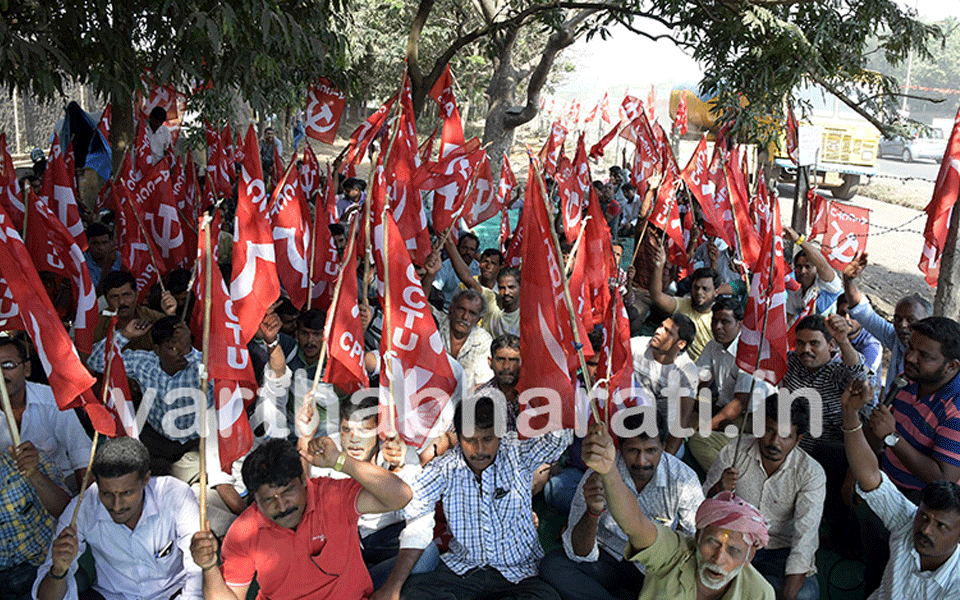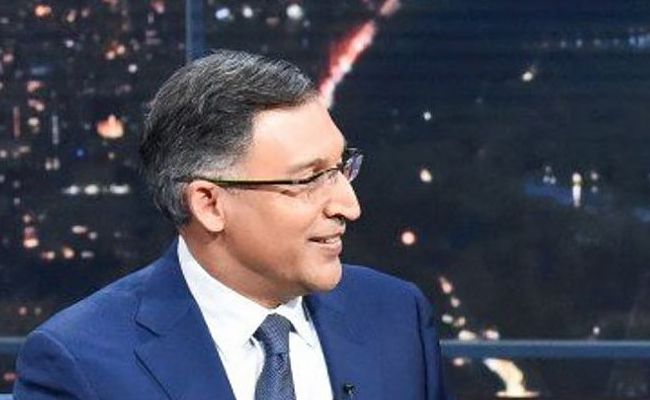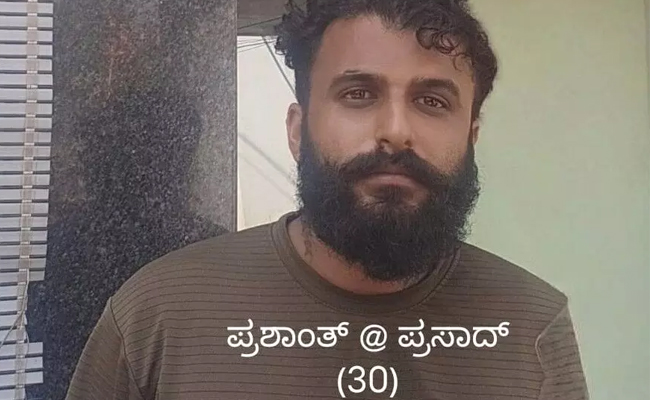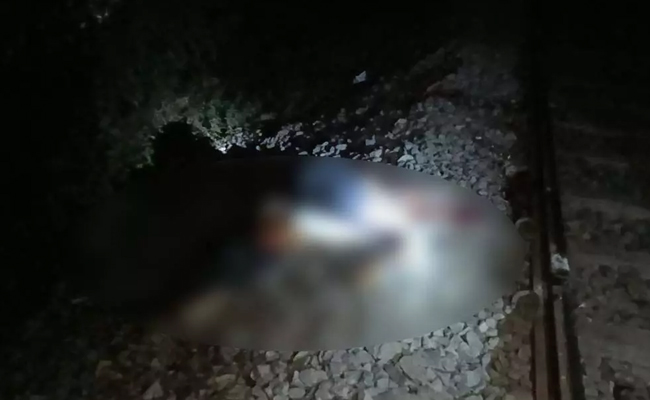Mangaluru: Workers at the New Mangalore Port Trust (NMPT) have been on an indefinite strike since January 29 to press the authorities to full fill their various demands including the implementation of minimum wages.
All shipping companies workers must get minimum wages declared by the central government. Per hour Rs. 150 OT must be paid. Every year, 20 percent of minimum wages must be given as a bonus. Equal pay for equal work should be carried like harbor's direct employees. All workers job should be made permanent. No worker should be removed by giving false reasons. These are the demands for which workers of NMPT shipping company are protesting.
This is the first time, workers of the shipping company have come forward to raise their voice against the authorities to full fill their demands.
AICCTU national vice-president Shankar said "first time in the history, more than 1000 workers have staged the protest near NMPT entrance gate. Maximum laborers are localities. During this protest, the authorities of the company have brought labors from Bihar and Ballary and taking work from them. When there is the legal protest in the process, recruiting temporary workers is illegal and is an unfair labor practice which is prohibited according to the Industrial Dispute Act 1947".
Letters sent to shipping company
"Letters have been dispatched stating that workers are absent which is illegal. There is a legal strike going on, and workers are being harassed and threatened by all means. Shipping companies are visiting the workers' residence and threatening them to join work. Our workers are determined, and they have been asked to sign an agreement with the Labour Department in the presence of deputy labor commissioner under section 12(3) so that workers will be safe. The management of both the companies have promised many things, but never fulfilled them," he added.
Meeting on February 6
"A conciliation meeting has been called by deputy chief labor commissioner (Central) Subramaniam on February 6. He is the Karnataka in-charge and the labor authority deputed by the central government to handle the issue of the strike here. If the company management attends the meeting tomorrow, before the labor authority meeting, we are willing to cooperate fully to solve the issue. If our demands are not met, we will have to continue the strike. Now, the ball is in the court of the shipping company," he said.
Let the Truth be known. If you read VB and like VB, please be a VB Supporter and Help us deliver the Truth to one and all.
Udupi: Udupi City Police have arrested two persons, including a woman, in connection with the alleged misappropriation of property tax funds belonging to the Udupi Municipal Council.
The accused have been identified as Shalini, who was working as a tax consultant outside the municipal office, and Ganesh, a bank employee.
According to police, Anand Suvarna had paid Rs 34,730 towards 12 years of property tax for his building in Kalmadi to Shalini on October 16, 2025. She reportedly issued him a receipt acknowledging the payment.
However, when Suvarna recently checked the status of the payment on the property tax portal, he found that the amount had not been credited and was still shown as pending. He then brought the matter to the notice of the Municipal Commissioner, who verified that the payment had not been recorded.
During questioning, Shalini allegedly admitted to the lapse. On February 16, 2026, she generated a new challan in Suvarna’s name and paid Rs 35,213 towards the dues.
Police said a case has been registered at the Udupi City Police Station against the accused for allegedly misappropriating tax money and defrauding the government by affixing the seal of Union Bank on the challan without remitting the amount initially received from the taxpayer.
Further investigation is under way.





